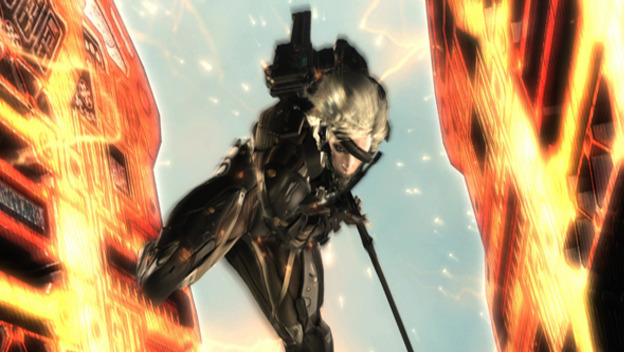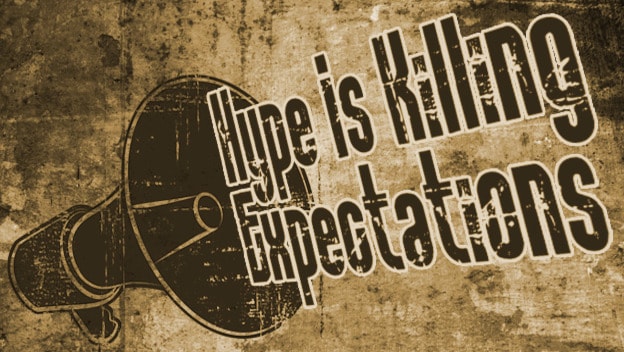Here’s the scenario: E3 comes around and there’s this awesome new game being made. It’s being done by one of the biggest AAA developers on the market and is huge enough to take center stage during one of the main E3 press conferences. All the journalists at the show give it glowing reviews. Afterwards, a huge marketing campaign starts showing off tiny info leaks every few weeks, getting you more and more excited about this awesome game. A year passes and now you know just about everything there is to know about the game. You haven’t even played it yet, but you know everything about the story, the characters, and the first few levels because you have watched behind-closed-doors demo footage religiously. Then the game comes out and… it’s alright.
For you, this is a minor annoyance. You were looking forward to something that wasn’t all it was cracked up to be. But what is it like from the other side? What is the game developer thinking?
Well, the game developer creates a product, which then gets noticed by some people who think it’s the best thing ever. They show a barely complete build on stage at a huge profile concert and everyone cheers regardless of the numerous bugs and flaws you have to work out. Journalists come to check it out and though many people notice the flaws in your game design, everyone keeps calling it “best game of show” and “greatest upcoming game of the year” and other titles like that. Now, your publisher is putting pressure on you to get the game out before the hype cools down because that’s the best way to get sales. So you gloss over fixing a few of the flaws you promised the journalists you would fix in the final build, omit a couple of levels, and get the game out when everyone is still talking about it, and the result is only alright.
Unfortunately, an “alright” game is not just an annoyance for a developer; it’s a death sentence. There are people whose job it is to specifically predict the amount of copies a game will sell. If fans, publishers, journalists, and developers get caught in a feedback loop of hype, obviously they are going to predict a ludicrous amount of sales. But hype alone doesn’t sell a game.
Let’s look at Tomb Raider as an example. This game was hyped at every trade show it went to. It won numerous best-in-show awards, had a huge marketing blitz, and the gaming community essentially waited three years to see the magnum opus that was Lara Croft’s reboot. The resulting game was, by all accounts, decent. It wasn’t phenomenal. It wasn’t “oh my god I have to cry because this game has rewritten my views on the universe and life itself” good. It was decent, worth a buy for fans of the genre, but not great enough to recommend to everyone.
So how did the game do when it came out? Well, it did decent. It did three million in sales which is very decent, indeed. However, that’s not what Square Enix was expecting. They were expecting five million in sales or more. They weren’t expecting decent; they were expecting glorious. They were expecting the same game that they have hyped up for themselves, and we hyped up for them. But that game didn’t exist anywhere except in our imaginations.
And what happens to the games that don’t get this huge influx of pre-release hype? Well, analysts peg the game’s sales at lower numbers, which means publishers and developers throw less money at it. The lower budget means that the development team has less flexibility and fewer resources and generally comes with a shorter release schedule as well. In a way, we are setting the game up to fail by not being hyped over it. We are choosing a game’s popularity before it even hits store shelves.

Before the days of the internet, hype was toned down to manageable levels. It still existed through TV commercials, in store demos, and articles in gaming magazines, but it wasn’t thrown at our faces on a daily basis like it is now. As a result, we saw far more cult-classic games like Illusion of Gaia or Actraiser. These games did well not because we hyped them up before release, but just because they were good games. Also, game studios rarely closed down due to not selling several million units, as we had no real expectations to go by. Sure, Nintendo would probably be hurt if the latest Mario game didn’t sell well, but that was a very rare occurrence back in the day.
As a community and a market, we really need to tone down our hype or else we are totally going to kill our reasonable game expectations. Soon, most developers are going to start chasing Call of Duty and most gamers are going to expect Call of Duty when booting up their copy of Generic Game 3. But not every game can be Call of Duty, and Call of Duty fans probably aren’t going to buy Generic Game 3 because they already have Call of Duty to play. Not every game is going to break the five million sales mark, and that’s OK. It’s perfectly fine for a game to simply be decent, and if we had more realistic expectations of these games, fewer gamers would be disappointed and fewer companies would suddenly find themselves having to deal with million dollar losses at the end of their financial year.
